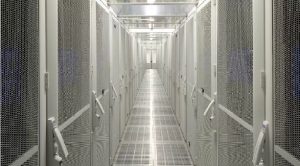11-10-2023
The Artificial Intelligence (AI) industry could consume as much energy as a country the size of the Netherlands by 2027, a new study warns.
 Big tech firms have scrambled to add AI-powered services since ChatGPT burst onto the scene last year.
Big tech firms have scrambled to add AI-powered services since ChatGPT burst onto the scene last year.
They use far more power than conventional applications, making going online much more energy-intensive.
However, the study also said AI’s environmental impact could be less than feared if it’s current growth slowed.
Many experts, including the report author, say such research is speculative as tech firms do not disclose enough data for an accurate prediction to be made.
There is no question, though, that AI requires more powerful hardware than traditional computing tasks.
The study, by Alex De Vries, PhD candidate at the VU Amsterdam School of Business and Economics, is based on some parameters remaining unchanged – such as the rate at which AI is growing, the availability of AI chips, and servers continuing to work at full pelt all the time.
De Vries considered that the chip designer Nvidia is estimated to supply about 95% of the AI processing kit required by the sector.
 By looking at the amount of these computers it is expected to deliver by 2027, he was able to approximate a range for the energy consumption of AI of 85-134 terrawatt-hours (TWh) of electricity each year.
By looking at the amount of these computers it is expected to deliver by 2027, he was able to approximate a range for the energy consumption of AI of 85-134 terrawatt-hours (TWh) of electricity each year.
At the top end that is roughly the amount of power used annually by a small country.
“You would be talking about the size of a country like the Netherlands in terms of electricity consumption. You’re talking about half a per cent of our total global electricity consumption,” he told media.
Nvidia declined to comment.
De Vries said his findings showed that AI should be used only where it is really needed. His peer-reviewed study has been published in the journal Joule.
AI systems such as the large language models that power popular chatbots, like OpenAI’s ChatGPT and Google’s Bard, require warehouses full of specialist computers called data centres to work.
That means the equipment is more power-hungry and, like traditional kit, it also needs to be kept cool, using water-intensive systems. (Int’l News Desk)
 Pressmediaofindia
Pressmediaofindia




